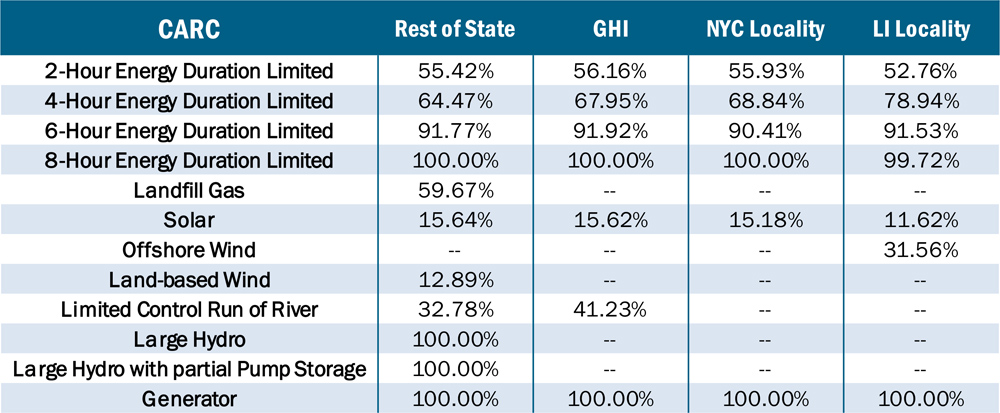WASHINGTON, D.C. ― The best way to defend the clean energy incentives in the Inflation Reduction Act could be to stop mentioning the law and focus on its benefits, a trio of speakers told the American Council on Renewable Energy (ACORE) Policy Forum on Feb. 29.
Melissa Burnison, vice president of federal legislative affairs at Berkshire Hathaway Energy, called for a refocus on areas of bipartisan agreement: “Our transition to a smart grid and … technologies that make the grid more efficient, that also increase their ability to carry more power [and] the responsiveness of the grid.”
“Everybody likes jobs and … everybody likes clean air and clean water for their kids, too, and for their communities,” said Sarah Hunt, president of the Joseph Rainey Center for Public Policy, a conservative-leaning D.C. think tank. “So, if you can talk about the benefits that your business has received from this policy, from this legislation, and how that translates and passes on to your customers and communities with which you engage … that’s the best way to go about it.”
In a rare all-female panel, Burnison, Hunt and Kelly Speakes-Backman, executive vice president for public affairs at power and transmission developer Invenergy, debated the way forward for the IRA and the future of U.S. clean energy policy should Republicans win both Congress and the White House in November.
Introducing the panel, moderator Jayni Hein, co-chair of the carbon management and climate mitigation group at Covington & Burling, spoke first of the benefits of the law, with money and projects flowing to both red and blue states. “But despite these widely shared benefits, we’re at a really uncertain point,” Hein said.
“The Department of Treasury is in the midst of finalizing some very important rules and guidance,” such as direct pay and transferability of tax credits, along with updated guidance on bonus credits for energy communities and domestic content.
With the election hanging over such decisions, “the best defense is offense,” Hein said.
But the panelists mostly stuck with an emerging consensus ― also heard from other speakers at the forum ― that the economic benefits the IRA is creating will make it hard to repeal. (See Whitehouse: Best Defense for IRA Is Funding, Building More Projects.)
Burnison described her view as “optimistic and grounded.”
“Bipartisan benefits from the IRA, from tax policy [are] something that ― even from the most conservative congressional members, we’ve heard ― we’re not going to see a wholesale repeal of the IRA,” she said.
“First of all, it’s probably not possible, and second of all, it doesn’t make sense for their constituents.”
Hunt argued that even if Donald Trump returns to the White House and Republicans win control of both houses of Congress, “much of [the] IRA, much of the federal investment in clean energy [research and development], especially all-of-the-above, technology-neutral [incentives], are going to be fine.”
“I don’t think that President Trump and a Republican Congress are going to care a whole lot about the federal budget being too big,” she said, pointing to Republican spending between 2017 and 2020.
Going further, Hunt attempted to reframe the IRA as a “good Republican energy bill,” which included many provisions worked out in “bipartisan activity or even Republican offices.” The law has become politicized because the Democrats chose to pass it through the budget reconciliation process, rather than taking longer and pushing for a bipartisan bill, she said.
In calling for a return of manufacturing to the U.S., she said, Trump “socialized industrial policy … and it allowed for the IRA … for that conversation to take root and happen.”
Hunt said she sees support for the IRA coming from officials who worked at the Energy and Interior departments during the former administration and are now in leading positions at energy companies and advocacy groups.
Burnison was at DOE when former Texas Gov. Rick Perry was secretary of energy. Both she and Hunt identified themselves as Republicans who embrace clean energy and favor a technology-neutral approach.
Republicans Now Recruiting
Although the IRA’s clean energy incentives are likely safe, a second Trump administration will likely prioritize a fundamental shift in energy policy, from decarbonization and climate to energy and national security, the panelists said.
Speakes-Backman sees such a shift resulting in budget cuts at DOE, which could affect staffing and policy.
Recalling her time at DOE as principal deputy assistant secretary in the Office of Energy Efficiency and Renewable Energy from 2021 to 2022, she said implementing the IRA has been an enormous job for the department after its staffing was cut by Trump.
Her own office had “the lowest rate of staff to dollars ever in the history since 1977 … with dozens of studies that were [postponed] ― on transmission, on hydropower, certainly on solar and renewables,” Speakes-Backman said. “There were quite a few things that were stalled out across the entirety of DOE.”
Even if Republicans in Congress are “not going to be as focused on spending, they certainly will be focused on spending on administrative agencies that are pushing toward clean energy,” she said. “There is going to administrative slowdown,” which could also slow efforts to pass legislation to streamline permitting.
The agencies working on clean energy ― DOE, Interior and EPA ― “are going to be decimated,” Speakes-Backman said.
Neither Hunt nor Burnison saw any major threat in a Republican refocusing of energy policy.
That approach will change priorities around “how we look at things like solar and what we’re importing,” Burnison said, referring to Chinese dominance in the refining and processing of critical minerals for solar panels and electric vehicles. “What does that timeline look like in order to begin to phase out some of those imports and to begin to rebuild our domestic manufacturing capability and reliability?”
Responding to Speakes-Backman’s concerns over cuts to DOE, Hunt talked up current efforts, being led by the Heritage Foundation, to recruit and train new staff for federal agencies, who will be “ready to go on Day 1” of a new administration. At the same time, she discounted Project 2025, the foundation’s 920-page blueprint for the next Republican administration.
The section on DOE, authored by former FERC Commissioner Bernard McNamee, calls for the department to be renamed the Department of Energy Security and Advanced Science, with a narrowed focus on energy and national security, “cutting-edge fundamental advanced science” and developing new nuclear weapons.
While Hunt said the report should be read “with a grain of salt,” the personnel recruitment and training program is part of Project 2025 and led by three former Trump officials.
Good Business
Hunt said the electric industry’s support for the IRA will protect it from being repealed by Trump.
Burnison said Berkshire Hathaway and other energy companies are looking for the finalization of guidelines on the law’s tax credits and other rules, which will provide the regulatory certainty the industry has been waiting for.
“Are we expanding regulatory authorities? Are we contracting some of those? Where are the regulatory authorities moving to or even over to DOE? … Are we changing what those look like?” Burnison asked. With large energy or transmission projects taking five to 10 years or longer to permit and build, she sees a mismatch between IRA incentives and long-term business planning.
Speakes-Backman is waiting for the final guidance on tax credits for green hydrogen “as it relates to the ramp to hourly accounting” — matching the zero-emission energy used to produce clean hydrogen on a 24-7 basis versus the annual accounting widely used now.
“I think we all want to get to an hourly, fully clean hydrogen, but as we’re standing up the industry, there is a pace,” requiring a phased-in approach, she said.
Whoever wins the White House, Senate or House must understand “that clean energy is good business,” she said. “Whether that be in renewables, whether that be in natural gas to help peaking, whether it be transmission, whether it be energy storage, it is good business for this country.”

